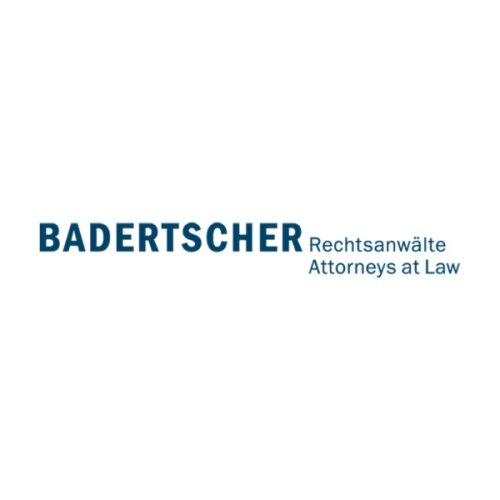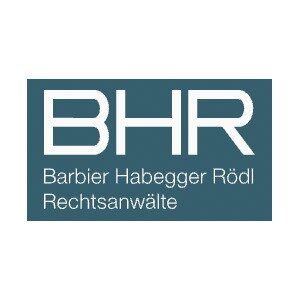Best Structured Finance Lawyers in Zug
Share your needs with us, get contacted by law firms.
Free. Takes 2 min.
List of the best lawyers in Zug, Switzerland
About Structured Finance Law in Zug, Switzerland
Structured finance is a specialized sector within the broader financial services industry focusing on complex financial instruments designed to manage risk and optimize funding sources for businesses and investors. Zug, located in the heart of Switzerland, is a prominent center for financial services, including investment management, banking, and, notably, structured finance. The canton has built a strong reputation as a global finance hub due to its favorable tax regime, regulatory stability, and business-friendly environment.
Structured finance in Zug typically involves transactions such as securitizations, collateralized debt obligations, asset-backed securities, and bespoke financial products tailored to meet the specific needs of corporations, investment funds, and high-net-worth individuals. Legal matters in structured finance often demand deep industry knowledge and an understanding of Swiss law, international standards, and cross-border considerations.
Why You May Need a Lawyer
Involvement with structured finance products or services often requires expert legal support. Here are common situations when you may need a structured finance lawyer in Zug:
- You plan to launch or invest in securitizations or other structured products
- You require structuring or re-structuring of complex debt instruments
- You need to negotiate terms with other parties, such as banks, investors, or counterparties
- You want to ensure regulatory compliance with Swiss and international financial laws
- You are dealing with cross-border transactions or multinational financing structures
- There is a dispute or litigation involving structured finance instruments
- You are considering innovative solutions, such as blockchain-based structured finance products
Local Laws Overview
Zug operates under Swiss federal law, supplemented by cantonal regulations and directives relevant to financial activities. The primary legal frameworks that govern structured finance include the Swiss Code of Obligations, Financial Market Infrastructure Act (FinMIA), Financial Services Act (FinSA), Financial Institutions Act (FinIA), and regulations enforced by the Swiss Financial Market Supervisory Authority (FINMA).
Structured finance transactions must comply with strict rules on transparency, risk disclosure, anti-money laundering (AML), and customer due diligence. Zug, as a financial center, supports efficient tax structures but upholds Swiss standards of financial integrity and international cooperation. When engaging in structured finance, parties must also ensure proper documentation, clear contractual arrangements, and compliance with data protection and securities law.
Many structured finance products in Zug are offered to qualified investors and institutional participants rather than retail clients, reflecting the sophistication of these instruments. Therefore, legal advice is crucial to navigate eligibility, transaction design, disclosure, and regulatory approvals.
Frequently Asked Questions
What is structured finance and how does it differ from traditional financing?
Structured finance refers to complex financial transactions typically involving securitization, bundling of assets, and the creation of tailored financial instruments. Unlike traditional finance, it uses advanced risk management and customization features to meet specific requirements of issuers and investors.
What are the most common structured finance products in Zug?
Common products include asset-backed securities (ABS), mortgage-backed securities (MBS), collateralized debt obligations (CDO), and syndicated loans. Zug’s innovation hub status has also led to the development of blockchain-based structured finance instruments.
Do I need regulatory approval for structured finance transactions in Zug?
Many structured finance activities require notification or approval from Swiss regulators, particularly FINMA. The requirements depend on the type of product, the parties involved, and whether the offering targets retail or qualified investors.
Are there tax benefits to structured finance in Zug?
Zug offers a favorable tax environment, which includes competitive corporate tax rates and flexible structuring options. However, tax treatment depends on the nature of the transaction, the parties, and applicable Swiss and international tax laws.
What are the documentation requirements for structured finance in Switzerland?
Swiss law emphasizes clear, comprehensive documents covering all material terms, risks, and responsibilities. Proper documentation is key for enforceability, regulatory compliance, and risk management.
Can international investors participate in structured finance deals in Zug?
Yes, Zug welcomes international investment. Cross-border deals are common, but often require careful legal and tax structuring as well as compliance with Swiss and foreign regulations.
What are the risks involved with structured finance?
Risks include credit risk, market risk, legal and regulatory risk, as well as operational and reputational risks. An experienced lawyer can help identify and mitigate these risks through contractual safeguards and compliance checks.
How can disputes in structured finance be resolved?
Disputes are often resolved through negotiation, mediation, or arbitration, with Swiss courts or arbitration panels providing oversight. Contractual mechanisms such as jurisdiction and choice of law clauses are standard practice.
What role does FINMA play in structured finance?
The Swiss Financial Market Supervisory Authority (FINMA) supervises banks, securities dealers, and asset managers, ensuring compliance with Swiss financial law and protecting market integrity. Many structured finance activities must be reported to or approved by FINMA.
How do I choose the best structured finance lawyer in Zug?
Look for lawyers or firms with specialized experience in structured finance, deep knowledge of Swiss and international financial law, and a strong track record in handling complex transactions for both domestic and global clients.
Additional Resources
- Swiss Financial Market Supervisory Authority (FINMA) for regulatory guidance
- Zug Chamber of Commerce for local business networking and support
- Swiss Bankers Association for industry standards and practices
- Swiss Structured Products Association for market updates and professional training
- Local law firms with dedicated structured finance and financial regulatory teams
Next Steps
If you require legal assistance in structured finance in Zug, Switzerland, consider the following:
- Assess your needs and clarify your objectives for the transaction or project
- Gather all relevant documents and background information
- Research law firms and lawyers with a proven track record in structured finance
- Schedule a consultation to discuss your case, potential risks, and solutions
- Request a clear fee arrangement and timeline before engaging services
Early legal involvement ensures compliance, mitigates risks, and supports the successful execution of complex financial transactions. Do not hesitate to seek professional advice as structured finance requires specialist knowledge and attention to detail.
Lawzana helps you find the best lawyers and law firms in Zug through a curated and pre-screened list of qualified legal professionals. Our platform offers rankings and detailed profiles of attorneys and law firms, allowing you to compare based on practice areas, including Structured Finance, experience, and client feedback.
Each profile includes a description of the firm's areas of practice, client reviews, team members and partners, year of establishment, spoken languages, office locations, contact information, social media presence, and any published articles or resources. Most firms on our platform speak English and are experienced in both local and international legal matters.
Get a quote from top-rated law firms in Zug, Switzerland — quickly, securely, and without unnecessary hassle.
Disclaimer:
The information provided on this page is for general informational purposes only and does not constitute legal advice. While we strive to ensure the accuracy and relevance of the content, legal information may change over time, and interpretations of the law can vary. You should always consult with a qualified legal professional for advice specific to your situation.
We disclaim all liability for actions taken or not taken based on the content of this page. If you believe any information is incorrect or outdated, please contact us, and we will review and update it where appropriate.









